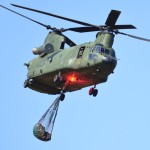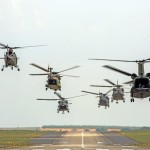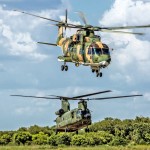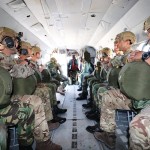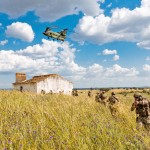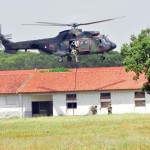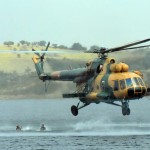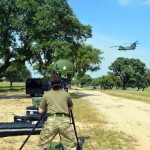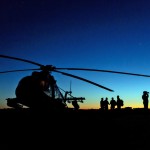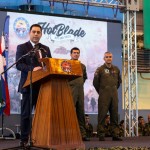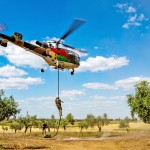The most recent in a series of European Defense Agency (EDA) exercises demonstrating interoperability among European militaries was held May 7-24 at the Beja Airbase in Portugal.
Called “Hot Blade” 2018, the exercise saw participation from Belgium, Germany, Hungary, the Netherlands, Portugal and Slovenia. It was the 12th exercise under the EDA’s Helicopter Exercise Program. The previous one occurred in May 2017 in Hungary.
“Together we are stronger,” noted exercise commander Lt. Col. João Rośa of the Portuguese air force, adding that strength of a force is developed within all faces of interoperability and knowing all units’ strong and weak points. The exercises allow European nations to practice using common operational tactics.
A total of 21 helicopters and eight fixed-wing aircraft, as well as ground troops, simulator/emulators operators and Joint Terminal Attack Controllers, participated in the exercise to practice operations in a hot, high and dusty environment.
The Dutch participated with two Boeing [BA] CH-47 Chinooks and two Airbus Helicopters AS532 Cougars.
As part of the exercise, pilots of Leonardo AW101 Merlins, NHIndustries NH90s, Chinooks, Cougars and other helicopters initially started with simpler tasks like getting familiar with each helicopter type. It then grew to more complex missions like composite air operation flights and night operations.
The air force and army units, by sharing knowledge among flying personnel from different countries and mutual briefing/debriefing, gained experience cooperating with allies. The ultimate goal is that there essentially is no operational difference between a Hungarian Mi-17 or German NH90 pilot, or between a Belgian A-109 and Portuguese EH-101 Merlin pilot.
The next “Blade” exercise occurs in the Czech Republic in May 2019.

